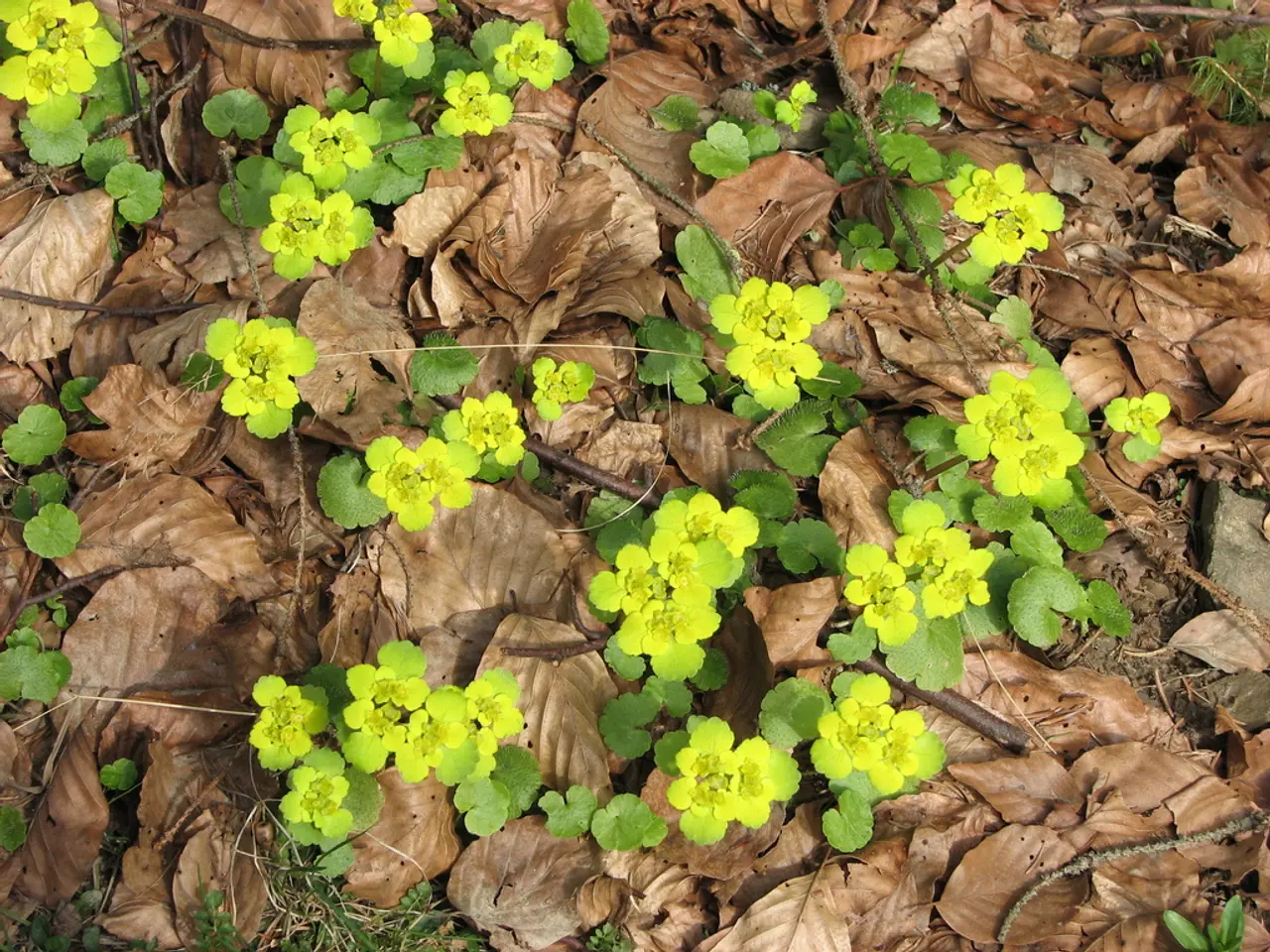Harsh Soil Causes Trouble for Plant Growth?
Hard soil and hard water can pose significant challenges to plant growth, but with the right strategies, these issues can be effectively managed.
Hard soil, characterized by an excess of chalky or metallic minerals like calcium, magnesium, and iron, can make it difficult for plants to access water, leading to moisture deficiency in the root zone. This can cause the soil to become compacted more easily than sandy or loamy soil, further limiting nutrient access for plants.
Hard soil can also change its texture, accumulating minerals that interfere with nutrient uptake. The altered soil pH, often made more alkaline by the excess minerals, will limit the availability of certain nutrients, further hindering the plant's growth.
Hard water, on the other hand, leaves mineral residue, or "scale", on plants' leaves as it evaporates, hindering the plant's ability to collect sunlight. This residue can also build up outside the plant in areas where water was absorbed. To protect plants from the adverse effects of hard water, it is recommended to use distilled, softened, or filtered water for irrigation.
Effective strategies to mitigate hard soil caused by continuous traffic, water imbalances, and tillage focus on improving soil structure, increasing organic matter, and reducing soil disturbance. These strategies include:
- Increasing perennial forages in crop rotations to enhance soil organic matter and reduce compaction.
- Using cover crops to protect soil from erosion, improve water infiltration, and build soil fertility without leaving soil bare.
- Reducing tillage intensity or adopting no-till practices, which preserve soil structure, minimize disruption to soil microbial communities, and reduce soil compaction and hardening caused by mechanical disturbance.
- Incorporating organic amendments like compost, which foster microbial activity essential for soil aggregation and resilience against compaction.
- Diversifying crop rotations and lengthening them by including more perennial species, which promote soil carbon storage and improve overall soil health.
- Planting trees or agroforestry systems in marginal or erosion-prone areas, which help increase carbon sequestration, reduce soil erosion, and improve soil moisture balance.
By implementing these strategies, soil porosity, water-holding capacity, and biological activity can be improved, mitigating the effects of hard soil from traffic, water variability, and tillage. Choosing drought-tolerant or aquatic plants that can thrive in hard water conditions is also an effective strategy. Regular soil testing and adjustments can help maintain optimal pH levels.
In conclusion, managing hard soil and hard water is crucial for promoting healthy plant growth. By understanding the effects of these conditions and employing appropriate strategies, gardeners and farmers can ensure their plants receive the nutrients they need to thrive.
Adopting practices like increasing perennial forages and using cover crops can benefit home-and-garden hobbyists by improving soil health, which is essential for maintaining plant health. Additionally, choosing drought-tolerant or aquatic plants that can flourish in hard water conditions can be a wise lifestyle choice for home gardeners, ensuring healthy and thriving greenery.






